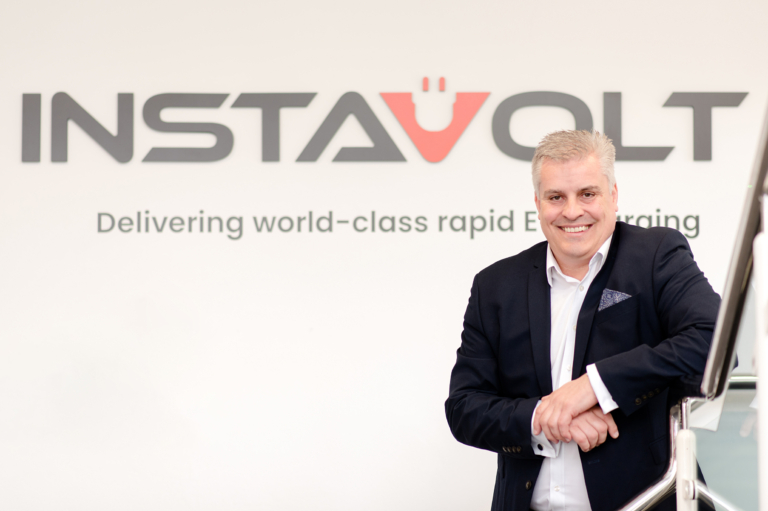Early-stage business financing by ‘angels’

Henley Business Angels hosted this discussion at Henley Business School’s Greenlands Campus on the River Thames – a roundtable providing the insights of proven business professionals, all ‘angels’ quite literally providing a wealth of knowledge, awareness, experience and importantly commercial success.
Journalist John Burbedge reports the highlights.
What aspects underpin and define angel investment – where has it come from, how has it changed and particularly what impact can and does it have on start-ups, scale-ups and growing businesses? – this Roundtable was asked.
Are we seeing more ‘angels’ nowadays?
Most definitely, stated Jurek Sikorski. “Angel investing has grown substantially over the years. The UK Business Angels Association (UKBAA) estimates there are about 20,000 UK business angels investing in total at least £1.5 billion, higher than the combined total for venture capital.
“The changes are quite significant with more women coming into angel investing – but still low at under 15%; UKBAA aims to boost that to 30%. Angels are also making more investments – the 2009 Nation of Angels Report median was 2.5 investments; by 2015 the median was five.
Angels are increasingly investing alongside other funding vehicles such as equity or crowdfunding, and the latest sentiment is that more angels now expect successful outcomes and a higher rate of return from their investments (ROI). It’s estimated the internal rate of return has increased to 22%.
“And, angels are increasingly investing in businesses making demonstrable social impacts, changing and contributing to communities and society, according to Meganne Houghton-Berry the UKBAA’s 2017 ‘Angel Investor of the Year’.”
What makes angel investing attractive?
Tony Harris summed it up:
• “It helps mitigate my tax liabilities.”
• The thrill and rewards of exiting well.
• “Watching a company succeed and provide more employment because of your capital investment, particularly when banks or other funders wouldn’t help them.”
Fellow Roundtablers agreed.
Frank Rodriguez: “My drivers are to see something flourishing and doing well, having empathy with the business, feeling that you have added value to a company and helped it succeed – as well as exiting well from it, which is a given.”
James Malone: “Every investment I’ve made has generally had some hook. It may have been financial, such as big returns I don’t want to miss out on. Or, helping out individuals with great potential whom I like, want to mentor, and see achieve their ambitions. Or, technologies that I think are simply fantastic and should be supported.”
Peter Hopkinson: “For me it’s important that it is fun, and I’m interested in the business.”
The strategies, rules and business angles of angels
There has to be a tax benefit, stated several Roundtablers.
Harris added: ‘I tend to invest in things I know, so the number of turkeys I’ve had has been relatively small compared with successes.”
Rodriguez admitted to a fairly random strategy. ”Some of my investments have a lifetime return through dividends, some are based on an exit. For me, the trigger is the management team.”
Dan Wagner noted: “Things don’t always go right first time for an entrepreneur, but, because of their inherent natures, maybe it will next time.” Seasoned investors who support promising entrepreneurs often also secure the rights to invest in their future projects.
Noting that true entrepreneurs seldom stop creating after a business failure, Wagner suggested such a confirmed future investment would be attractive. “After all, most entrepreneurs start with 100% ownership, but from one room with a bit of paper.
“Maybe there is an investment model for angels to buy ‘long-term bonds’ in the further business interests of certain executives or managers?”
Sikorski agreed that there were some individuals he would back “no matter what their ideas.” He exampled one such first-time failure, now successfully running a growing business and seeking major second-stage funding. “I stayed with him because I understood that his business ideas would adapt and change, but also that he was driven to succeed.”
“It always has to have an intellectual gain rather than just a financial return for me,” said Hopkinson. His investments tend to be with “businesses I understand and fascinate me.” He doesn’t invest in companies he is privately advising and helping to grow – “otherwise the others I advise want supporting too.”
Interestingly, Hopkinson has recently invested ethically in a private medical practice to assist with community health care locally.
“Over the years, the amount I’m prepared to invest has got smaller. People talk about getting 10 times return over five years, but I’d much rather get a more certain five times ROI or a potential 100 times my money. Today, I tend to take a blended investment approach – safe dividend plays and risky disruptive businesses.”
Sikorski agreed that many angels now adopt this blended approach – having learned the hard way from previous large losses – but ensure they monitor the delivery of essential ‘milestones’ promised by the supported business.
Hopkinson advised watching mature backers with deep pockets. Their investment successes can often guide angel secondary support.
Still working, Malone is time-poor for investment so tends to choose fewer but well-researched entities. “I try to find a financial incentive both on the way in and on the way out – leveraging Enterprise Investment Scheme (EIS) tax relief, and Entrepreneur’s Relief on Capital Gains Tax (CGT) based on a targeted 5% exit.
Lack of certainty over long-term tax reliefs pending Brexit re-arrangements remains his current concern.
Harris provided his ‘top ten tips’ for angel investing:
1 Never bet (invest) more than you can afford to lose
2 Spread bet (invest) to increase your probability of success.
3 Use EIS/SEIS to reduce your risk.
4 In general, bet (invest) in what you know, but don’t avoid ‘fun’ investments.
5 Invest with other angels if you can. If things go wrong it’s nice to be part of a group.
6 Invest in the management team as much as the business.
7 Do due diligence. ‘Gut investing’ can work if you know the business well, but it’s not ideal.
8 Take up your follow-on investment rights to protect your position in future funding rounds.
9 ‘Don’t panic.’ If things falter, be patient, work with the management team, help them.
10 As an alternative to the above, there’s always the 2.15pm at Windsor Races.
Can I work with these people?
Rodriquez focused on the qualities and character of the management team. “Do I want to work with them? Have they got talent, charisma – can I empathise with them. The people involved are the magnet for me.”
Wagner felt he was ‘a random investor’ often enamoured by the enthusiasm, drive and persistence of an individual entrepreneur. “I buy into the individual or management team. If they can sell to me, a salesman by nature, persuade me to part with my money, then they will get customers to do the same.” He viewed such investing as buying a piece of entrepreneurial spirit.
Sikorski agreed. “Management teams I invest in have to show business savvy, not just be scientists in love with their technologies. They must know how to create revenue streams and make money.”
While ROI was important, being able to offer his knowledge and experience also mattered a great deal within the investment deal, added Sikorski.
Apart from “business savvy first-and-foremost,” he listed other desirable investing qualities as: “Do I like them, can I see a synergy; can I help them with advice and mentoring; are they willing to take my advice?”
And entrepreneurial stamina: “Do they realise that failure is not the opposite of success, but an opportunity to do something again and again more intelligently until you get it right.”
Rodriguez revealed: “Some great ‘angels’ helped get our business off the ground. They invested in me and my colleagues, our passion and vision as a management team. They believed in us, saw that we had ‘va-va-voom’. You have to look at all the other aspects but actually it’s the management team that drives the business and makes things happen.”
Customer traction or va-va-voom?
Sikorski queried whether ‘va-va-voom’ was enough or whether customer traction or pre-sales were investment pre-requisites for angels.
It could depend on the business, suggested Hopkinson. Pre-sales for an internet service provider would likely be more risky than a business manufacturing kitchen gadgets.
Operating largely in the high-capital internet infrastructure space, Wagner agreed that endorsed customer pre-sales was ‘a huge tick in the box’ for investors and showed that the management team could sell. “Selling can be taught, but some people are naturals at it.”
Sikorski stressed that entrepreneurs had to be able to sell – not only to customers but angels or other investors – and importantly, learn to ask the basic question: ‘How much can I put you down for?’
Harris: “Anyone can sell, but they often don’t know how to ask for big numbers. Typically they undersell what they have, particularly in the tech sector. They seem frightened of asking for money, seeing that aspect as almost ‘dirty’.”
Wagner: “Price can be a ‘chicken and egg’ factor. You might go in low to get customer traction and attract investors, but if you go big ticket the sales cycle can be very long, finding funding can be endangered and it’s difficult to maintain business momentum or move upwards from the original low pricing.”
Rodriquez didn’t agree that everyone can sell, but exampled service technicians being trained to ‘warm up’ customers with relevant marketing and sales detail when visiting client premises.
Tim Carswell: “At CCG we typically get enthusiastic but inexperienced entrepreneurs. They may have been running a corporate division and have a product or service idea that they feel they can offer and sell better. They may well be persuasive, but I simply ask: ‘Is the world ready for this, the market timing right, the commercial infrastructure in place?’”
His key things learned as an angel investor were:
• Not all entrepreneurs with a great idea are good at running and growing a business.
• Not all business founders recognise their limitations, their need for help or time to exit.
• Co-investors may not have deep enough pockets to maintain appropriate growth.
What’s not working for today’s angel sector?
HMRC stated Harris bemoaning late repayment of EIS tax relief entitlements. “Clearly the HMRC is overwhelmed, but end-of-year delays of several months have disrupted my control of investment activities. Either HMRC needs more resources or an improved process.” Other roundtablers echoed this concern.
Malone suggested an extension on the artificial financial cap on EIS investment imposed by HMRC. “If you want to encourage investment you have to loosen the reins.”
Wagner highlighted his EIS and SEIS concerns. “They are restrictive for the business owner because he can’t own more than 50%, so to attract an EIS investor he has to sell more than half of his company. And start-up entrepreneurs seldom want to sell out early.”
He also felt strongly that Capital Gains Tax should not be paid by investors supporting start-ups that generate new UK employment. “The Government will get PAYE, NIC, all sorts of taxes from the new business. They don’t need to tax the guy taking the chance.”
UK v US investment mindsets
“European investors seem to have some peculiar psychology around the start-up entrepreneur not being paid like a normal CEO,” suggested Wagner. “Either the entrepreneur is going to be effective at building their business and should be paid a proper salary for doing that, or they are ineffective and should be removed. Problems arise by not paying your entrepreneurial founder appropriately.
“In America, where I have experience, they pay founder/CEOs very well and, if they are good, investors have no problem in them taking money off the table. Here in the UK and Europe, if entrepreneurs are not motivated by investors they will look to sell out, never aim to build big long-term businesses.
“I don’t want the CEO to be worried about paying a mortgage and their actions to be dictated by external concerns.”
In the USA a lot more money is raised for start-ups, thus enabling fledgling businesses to underpin their founder/CEOs’ salaries, noted Sikorski.
It comes down to proper initial capitalisation of the start-up and then appropriate allocation of funds – a matter of mindset change, added Wagner.
A good founder/CEO can also bring in seasoned executives to manage a growing business. Such proven talent or sector knowledge may not come cheap, but is often “worth every penny”.
Harris agreed, but added: “I want my management team to be appropriately paid, invested in the business, but there also has to be suitable incentivisation to be commercial and grow – a proper balance between remuneration and incentivised performance.
Carswell suggested UK investors were often “too gentlemanly and relaxed” in their approach. “We support a good idea, give an entrepreneur some money. They go off with it and a year later come back and say they need some more money or the business failed. We fail to provide input or monitor our investment. We need to be much more commercial, more on the ball, and founders need to be on proper contracts with sanctions if they don’t perform.”
Is co-funding an angel option?
Sikorski suggested greater angel capitalisation might be achieved through a specified co-fund – an organised network of various funders, investing alongside but led by an angel group. He shared his vision of a Henley CoFund invested in by, for example, the University of Reading might be feasible.
While not discounting the idea, Hopkinson raised the obvious angel query. “For angels, a lot will depend on where the other money is coming from.”
Sikorski described the Henley CoFund as attracting investment from family offices, institutional investors, European Investment Funds, specialist selected VCs, the proposed National Investment Fund to be launched by the British Business Bank as well as high-net-worth individuals (HNWIs), depending upon the agreed fund criteria. But, it would definitely have an authorised FCA-regulated fund manager running it.
Becoming an angel … or finding one
Rodriguez questioned the ability of affluent or HNWIs to become business angels – and fund-seeking businesses to find angels.
“Did we know how to be angels? You learn by trial and error. Have we been on training courses? – No. Have we learned by scoring goals and own goals, gaining golden nuggets of information at networking events? – Yes.”
He suggested structured awareness, training and education would benefit the angel funding sector overall.
Malone agreed, noting that many fledgling businesses had no idea how to seek out or choose an angel.
Harris stated that due diligence (DD) should be an accepted two-way process in any angel investment – the potential funder checking out the business suitability, and the loanee establishing the angel’s credentials.
Sikorski revealed that the UKBAA offers a range of training courses for angels including ‘Introduction to Angel Investing’ accredited for Continuing Professional Development (CPD) and the recently launched e-learning course on ‘How to be an angel’ that leads to a ‘Diploma in Angel Investing’ accredited qualification.
Well publicised ‘angel-hubs’ combining education, networking and social activities, at venues such as Henley Business School, might help overcome the lack of awareness and knowledge about the angel sector, he suggested.
There was broad support from the roundtablers.
Carswell said the CCG already ran sponsored networking and social events, as did other angel groups around the UK. “It does engender good camaraderie, people talk business, ideas emerge and things happen from such events.”
Rodriguez concurred, suggesting an angel-hub ‘knowledge library’ would also be useful.
Sikorski highlighted the UKBAA’s announced support for an online depository of angel information.
Harris: “Anything that improves angel networking or the opportunity to talk to and learn more about companies, without becoming funding pitches, would be very useful.”
Keeping social activities separate from business pitching, the informal from the formal, was vital for the ongoing acceptance of those attending, Hopkinson stressed. Surrey Investment Club, he noted, had successfully created a friendly ‘team of investors’ atmosphere.
How do we attract and involve more female angels?
Sikorski spotlighted the failure to involve and deploy the full UK angel investment capacity of affluent women and female HNWIs – currently estimated at below 15%.
During a brainstorming session, the roundtable considered and broadly agreed a range of initiatives including refreshing contacts and giving talks to existing women’s business networks, being more pro-active with invitations to angel events and seminars, angel mentoring opportunities, and wider publicity about angel investing by women.
Participants
Tim Carswell: Member, Cambridge Capital Group (CCG)
Tony Harris: Member, Henley Business Angel (HBA), CCG and Oxford Capital Partners (OCP)
Peter Hopkinson: HBA member
James Malone: HBA member
Frank Rodriguez: HBA member
Dan Wagner: Chairman, Bright Station Ventures
Jurek Sikorski: Executive director for Henley Centre for Entrepreneurship and Henley Business Angels chairperson, led the discussion














